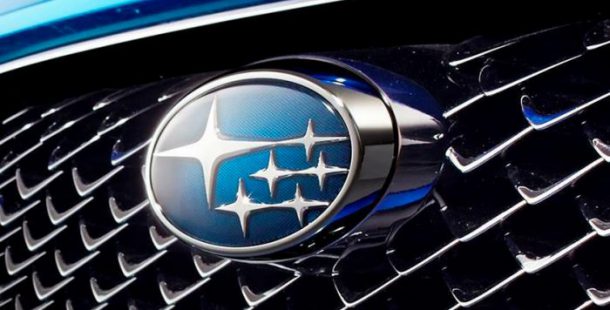Subaru Admits Employees Manipulated Fuel Economy Data

In December of last year, Subaru and Japanese law firm Ohno & Tsunematsu opened an internal investigation to determine if employees tampered with fuel economy ratings for some of its Japanese-market vehicles. The issue arose in the wake of Nissan and Subaru being faulted for decades of improper final inspection procedures at specific plants. While the issue initially seemed relatively benign, subsequent interviews with Subaru employees resulted in confessions that “certain data with respect to fuel economy and emissions may have been altered” during the course of final vehicle inspections.
What originally appeared to be automotive employees taking bureaucratic shortcuts evolved into something a bit more serious. Subaru recently released the results of the investigation and has admitted to falsifying the fuel consumption data of 903 cars assembled at its Gunma Manufacturing Division and Yajima factory. However, the internal probe only encompasses December 2012 until November 2017. All data from before this period is mysteriously absent.
Interesting, considering the suspect employees claim the figure flubbing probably started around 2002.
A final report on the matter has been submitted to Japan’s Ministry of Land, Infrastructure and Transport. We’re expecting more to come of this, as the ministry was upset about uncertified workers signing off on vehicles even before news of the falsified data surfaced.
Subaru attributes the altering of fuel consumption data to senior employees advising inspectors to change results for each vehicle that did not meet internal quality control standards. It also said “managers at or above the section chief level and executive managers were not aware of alterations.”
According to the automaker’s official report, employees also altered the data with the intention of minimizing variance in measurement values in order to avoid questions from the group chiefs and section chief. As a result, some of the vehicle data was altered to show it performing worse.
The investigation looked into roughly 6,500 vehicles, discovering that data was inappropriately altered on 903 of them.
At face value, it looks like inspectors were just trying to avoid making more work for themselves and the company. But that would also be a perfect excuse for a more sinister, decade-long corporate plot to bolster fuel economy data. There’s no evidence to suggest this, but questions remain as to why senior to junior inspectors decided to implement a policy they had to know was against the rules.
Subaru’s been extremely apologetic since the final inspection issue came to light in 2017. In the translated report, the company apologizes numerous times and said it will take every step necessary to restore lost trust:
“Subaru takes [this matter] very seriously and profoundly regrets that this issue was taking place in addition to the Nonconforming Final Inspections disclosed last year … these problems undermined the trust of its customers and other stakeholders in our final vehicle inspections, product performance data and catalog values released by the company, and thus in Subaru itself.
The problem stems from causes similar to those behind the Nonconforming Final Inspections, namely a lack of awareness of public interest in, and importance of, final vehicle inspection work, a lack of normative consciousness leading to inspection results being altered to their own advantage, and inadequate internal communication … Subaru needs to reform its corporate culture from the ground up.
Subaru sincerely regrets the facts uncovered by the Investigation and has openly disclosed the details. In addition to taking measures to prevent recurrence of the Nonconforming Final Inspections, Subaru is determined to implement measures to prevent recurrence of this problem, to reform outdated aspects of its corporate culture such as authoritarianism, reliance on precedents, and formalism, and to become a genuine ‘upright company,’ [with each employee thinking], ‘what is the right thing?’ and implementing [it correctly].
Subaru’s management and employees will work collectively to restore lost trust and ensure that such circumstances do not recur.
We would like to reiterate our deepest apologies for the significant trouble and inconvenience caused to our customers, partners, and all other stakeholders.”
[Image: Subaru]

A staunch consumer advocate tracking industry trends and regulation. Before joining TTAC, Matt spent a decade working for marketing and research firms based in NYC. Clients included several of the world’s largest automakers, global tire brands, and aftermarket part suppliers. Dissatisfied with the corporate world and resentful of having to wear suits everyday, he pivoted to writing about cars. Since then, that man has become an ardent supporter of the right-to-repair movement, been interviewed on the auto industry by national radio broadcasts, driven more rental cars than anyone ever should, participated in amateur rallying events, and received the requisite minimum training as sanctioned by the SCCA. Handy with a wrench, Matt grew up surrounded by Detroit auto workers and managed to get a pizza delivery job before he was legally eligible. He later found himself driving box trucks through Manhattan, guaranteeing future sympathy for actual truckers. He continues to conduct research pertaining to the automotive sector as an independent contractor and has since moved back to his native Michigan, closer to where the cars are born. A contrarian, Matt claims to prefer understeer — stating that front and all-wheel drive vehicles cater best to his driving style.
More by Matt Posky
Latest Car Reviews
Read moreLatest Product Reviews
Read moreRecent Comments
- Ajla A union fight? How retro 😎
- Analoggrotto Finally, some real entertainment: the Communists versus the MAGAs. FIGHT!
- Kjhkjlhkjhkljh kljhjkhjklhkjh *IF* i was buying a kia.. (better than a dodge from personal experience) .. it would be this Google > xoavzFHyIQYShould lead to a 2025 Ioniq 5 N pre-REVIEW by Jason Cammisa
- Analoggrotto Does anyone seriously listen to this?
- Thomas Same here....but keep in mind that EVs are already much more efficient than ICE vehicles. They need to catch up in all the other areas you mentioned.


































Comments
Join the conversation
The responses make me wonder if publishing news here is worth the trouble, since nobody seems to have the faintest memory of the "scandal" of a few months ago. Nissan and then Subaru admitted to not having trained inspectors properly to give the Japanese government final inspection for JAPANESE MARKET cars. Part of the bureaucracy endemic there that does not seem to acknowledge that modern quality assurance exists, and that guys in white gloves equipped with eyeballs and a clipboard can spot deficiencies deep in the bowels of a vehicle. Such a quick once over "inspection" is legally required for Japanese customers but no one else. How quaintly 1958. Now it transpires that inspectors made it all seem good, worried that saying anything else would cause corporate shame and bring criticism down on their heads. The Reuters expose in 2015 of how Subaru treated foreign temporary workers at Ota/Gunma at Subaru suppliers, working them hard for very low wages, never gained traction in the news media. Doggies first. https://www.reuters.com/investigates/special-report/japan-subaru/ Read that. I own a Subaru but this kind of made me puke. Nasty corporation at heart, far worse than some slipshod white glove "inspection". Here's a sentence: "What Subaru does not tout is that its boom is made possible in part by asylum seekers and other cheap foreign laborers from Asia and Africa." Doesn't make for inspiring reading.
I've always wondered about variance between individual, stock cars vis-a-vis estimated mileage. I got a new Impreza after Dieselgate, and I gotta say I think the mileage on mine fairly well sucks. I've broken 30 mpg on a tank maybe once or twice in the year I've had it. I think my wife's Forester gets better mileage. Other people claim to be getting 40 mpg or at least the 37 mpg it was rated. I'd be very interested to see if Subaru's North American division gets caught up in this. I like the car pretty well otherwise, but I'm not a lead-footed driver, and I want my damn 35+mpg I bought into.